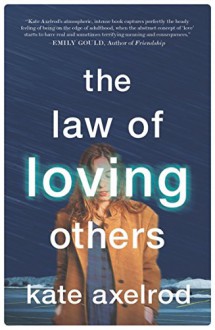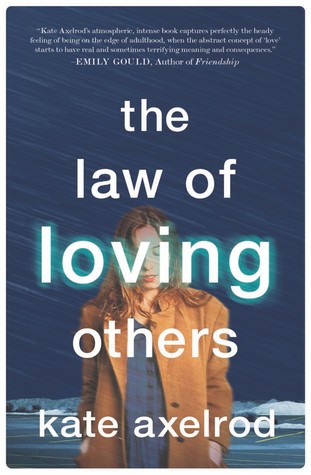Global Schizophrenia Drugs Market is expected to reach USD 7.9 billion by 2022. Schizophrenia is a serious disorder that affects how a person thinks, feels, and acts. People suffering from schizophrenia have difficulty distinguishing between real and reel, and expressing emotions. Schizophrenia is mainly observed in males than in females. Antipsychotic drugs are mainly prescribed, as they help to control symptoms like disorganized thinking, hallucinations, and delusions by blocking specific chemicals in the brain like serotonin and dopamine.
The antipsychotics drugs may be atypical and typical and are available in various forms like injection, tablet, or syrup. The symptoms involved can be positive, negative, or cognitive. The World Health Organization (WHO) has estimated that the disease around the world affects about 24 million people. The Schizophrenia Drugs Market is estimated to grow at a significant CAGR of 2.5% over the forecast period as the scope and its applications are rising enormously across the globe.
The report “Schizophrenia Drugs Market Size & Forecast Report, 2016 - 2022” is available now at https://www.millioninsights.com/industry-reports/schizophrenia-drugs-market
Rising occurrence of Schizophrenia disease as changing lifestyle, high demand for enhanced therapy by patients and physicians, developing R&D sectors with enhanced technology, and growing addictions like narcotics and alcohol are documented as major factors of Schizophrenia Drugs Market that are estimated to enhance the growth in the years to come. However, high cost of therapy, side effects caused by drugs, and lack of awareness in developing regions may restrain overall market in coming years. Schizophrenia Drugs industry is segmented based on therapeutic class, treatment, distribution channel, and region.
Third-Generation Antipsychotics, Second-Generation Antipsychotics, and other therapeutic class are explored in Schizophrenia Drugs in the forecast period. Others segment may include generics and First-Generation Antipsychotics. Second-Generation Antipsychotics comprises drugs like Risperdal, Vraylar, Invega, Saphris, Zyprexa, and others. On the other hand, Third-Generation Antipsychotics includes Aripiprazole. Second- and Third-Generation Antipsychotics sectors account for the majority market share and are estimated to continue its dominance in coming years. The drugs involved in second- & third-generation help to improve the treatment outcome and decrease the hospitalization.
Injectable and oral are the treatment action that could be explored in Schizophrenia Drugs in the forecast period. The market may be characterized based on distribution channels like rehabilitation centers, hospitals comprising hospital pharmacies, retail pharmacies, clinics, and others that could be explored in forecast period.
Globally, North America accounted for the substantial market growth of Schizophrenia Drugs and is estimated to lead the overall market in coming years. The reason behind the overall market growth could be developed healthcare infrastructure and R&D sectors, rising use of enhanced technology for the development of enhanced drugs, and rising awareness among populace regarding the disease. The United States is a major consumer of Schizophrenia Drugs in the region, as presence of key manufacturers mainly generic and it affects about 1% of the population and more than 2 million people in the U.S. alone.
Instead, Europe and the Asia Pacific are also estimated to have a positive influence on the future growth. Europe is the second largest region with significant market share. However, Asia Pacific is estimated to grow at fastest pace with the highest CAGR in the foremost period. The aspects that may be ascribed to the growth comprise growing awareness regarding early diagnosis, developing healthcare infrastructure and R&D sectors, increasing disposable income, and growing major manufacturers in the region. The developing countries like India, Japan, and China are the major consumers of Schizophrenia Drugs in the region.
Request a Free Sample Copy of Schizophrenia Drugs Market Report @ https://www.millioninsights.com/industry-reports/schizophrenia-drugs-market/request-sample
The key players of Schizophrenia Drugs Market are Pfizer, Johnson & Johnson, Allergan, Bristol-Myers Squibb/ Otsuka Pharma, Vanda Pharma, AstraZeneca, Alkermes, Sumitomo Dainippon, and Eli Lilly. These players are concentrating on inorganic growth to sustain themselves amongst fierce competition. As companies all over the world have to believe that alliance with a market would permit them proportional market existence and authority to declare the leadership position.
Market Segment:
Therapeutic Class Outlook (% Market Share; 2016 - 2022)
• Second-Generation Antipsychotics
• Risperdal (Risperidone)
• Invega (Paliperidone)
• Zyprexa (Olanzapine)
• Geodon (Ziprasidone)
• Seroquel (Quetiapine)
• Latuda (Lurasidone)
• Aristada (Aripiprazole Lauroxil)
• Fanapt (Iloperidone)
• Saphris (Asenapine)
• Vraylar (Cariprazine)
• Third-Generation Antipsychotics
• Abilify (Aripiprazole)
• Others
• First-Generation Antipsychotics
• Generics
Treatment Outlook (% Market Share; 2016 - 2022)
• Oral Antipsychotics
• Injectable Antipsychotics
Regional Outlook (% Market Share; 2016 - 2022)
• U.S.
• U.K.
• France
• Germany
• Italy
• Spain
• Japan
To read more reports of this category, Visit our blog: https://healthandpharmamarketers.tumblr.com

 Log in with Facebook
Log in with Facebook 










